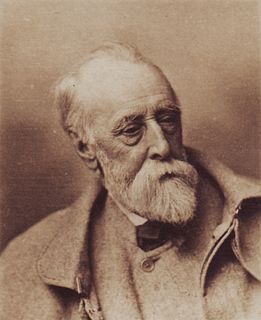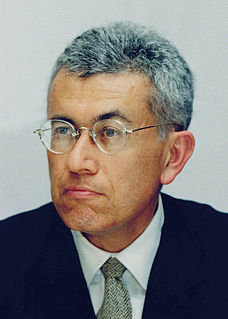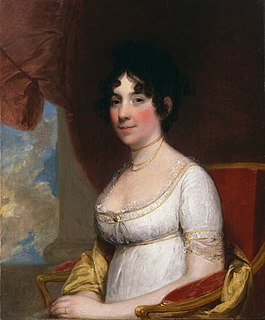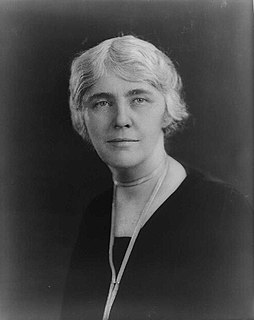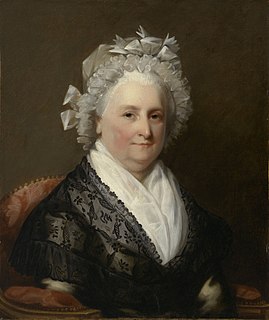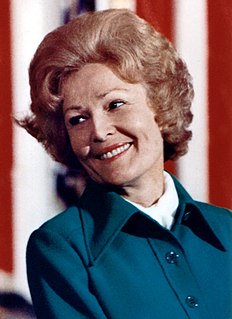A Quote by Lady Bird Johnson
I believe that one of the great problems for us as individuals is the depression and the tension resulting from existence in a world which is increasingly less pleasing to the eye.
Quote Topics
Related Quotes
The great and secret message of the experiential mystics the world over is that, with the eye of contemplation, Spirit can be seen. With the eye of contemplation, the great Within radiantly unfolds. And in all cases, the eye with which you see God is the same eye with which God sees you: the eye of contemplation.
Well, years and years ago, I started to ask myself three very simple questions, which dominated my life for many years. One of them was, "Why are organizations everywhere, whether commercial, social, or religious, increasingly unable to manage their affairs?" The second question was, "Why are individuals throughout the world increasingly in conflict with and alienated from the organizations of which they're a part?" And the third was, "Why are society and the biosphere increasingly in disarray?"
Where we get into problems, typically, is when our personal religious faith, or the community of faith that we participate in, tips into a sort of fundamentalist extremism, in which it's not enough for us to believe what we believe, but we start feeling obligated to, you know, hit you over the head because you don't believe the same thing. Or to treat you as somebody who's less than I am.
The Panic of 1819 exerted a profound effect on American economic thought. As the first great financial depression, similar to a modern expansion-depression pattern, the panic heightened interest in economic problems, and particularly those problems related to the causes and cures of depressed conditions.
In a world of democracies, in a world where the great projects that have set humanity on fire are the projects of the emancipation of individuals from entrenched social division and hierarchy; in such a world individuals must never be puppets or prisoners of the societies or cultures into which they have been born.
Buddha wrote a code which he said would be useful to guide men in darkness, but he never claimed to be the Light of the world. Buddhism was born with a disgust for the world, when a prince's son deserted his wife and child, turning from the pleasures of existence to the problems of existence. Burnt by the fires of the world, and already weary with it, Buddha turned to ethics.
Until the Great Depression, most economists clung to a vision of capitalism as a perfect or nearly perfect system. That vision wasn’t sustainable in the face of mass unemployment, but as memories of the Depression faded, economists fell back in love with the old, idealized vision of an economy in which rational individuals interact in perfect markets.


